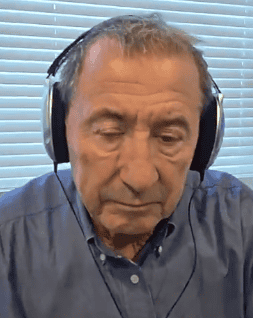Battle Cry of Freedom is our signature song. We play its first seven notes in our radio and TV messages. The song was written by George Frederick Root in 1862 during the darkest days of the American Civil War. Like the opening words of our Declaration of Independence of 1776, and Abraham Lincoln’s speech at Gettysburg in 1863, this song proudly announced to the world that America was unique and special nation created to provide Liberty and Justice for All, and that was worth preserving and defending and fighting for, and dying for.
Today, too many people on both the left and the right either deliberately distort, or carelessly overlook the true history of the America Civil War to advance their own agendas.
But the words of this song written in 1862, together with other authentic artifacts written and published at the time conclusively prove that the American Civil War was fought to first limit, and then end the abomination of slavery.
The song declares:
- We shall welcome to our numbers, the loyal true and brave
- Shouting the battle cry of freedom
- And although he may be poor, not a man shall be a slave
- Shouting the battle cry of freedom
This song was so popular, that at one time, the publisher had 14 printing presses operating at one time, and still could not keep up with demand. It is estimated that 700,000 printed copies of this song were put into circulation. The Republican Party modified the chorus of the song to urge Abraham Lincoln’s re-election and the defeat of Democratic white supremacist, peace and compromise on slavery candidates in 1864 with the words:
- For Lincoln and Johnson, hurrah, boys hurrah
- Down with the rebellion, and on with the war
- While we rally round the cause boys, we’ll rally in our might
- Singing the holy cause of free men
Used this song in Abraham Lincoln’s re-election campaign.
Other authentic artifacts that prove beyond any doubt that the American Civil War was fought to first limit, and then abolish slavery include:
- Abraham Lincoln’s widely published speeches in the Lincoln-Douglas debates of 1858, at Cooper Union in 1859, at Gettysburg in 1863, and at his second inauguration of 1864.
- Published newspaper accounts of the trial of John Brown and public reaction to it in 1859.
- The popular political campaign song of the Republican Party in 1860–Lincoln and Liberty Too.
- The Ordinance of Secession of South Carolina of January 10, 1861 and the ?Constitution of the Confederate States of America of March 11, 1861.
- The popular Civil War songs Battle Hymn of the Republic, Kingdom Coming (Year of Jubilo), and Marching through Georgia.


Whee can we find the whole song. Maybe born versions.
I just added Tom Roush version on YouTube. Here’s the link; https://youtu.be/cGfRWyAG-Z4?feature=shared